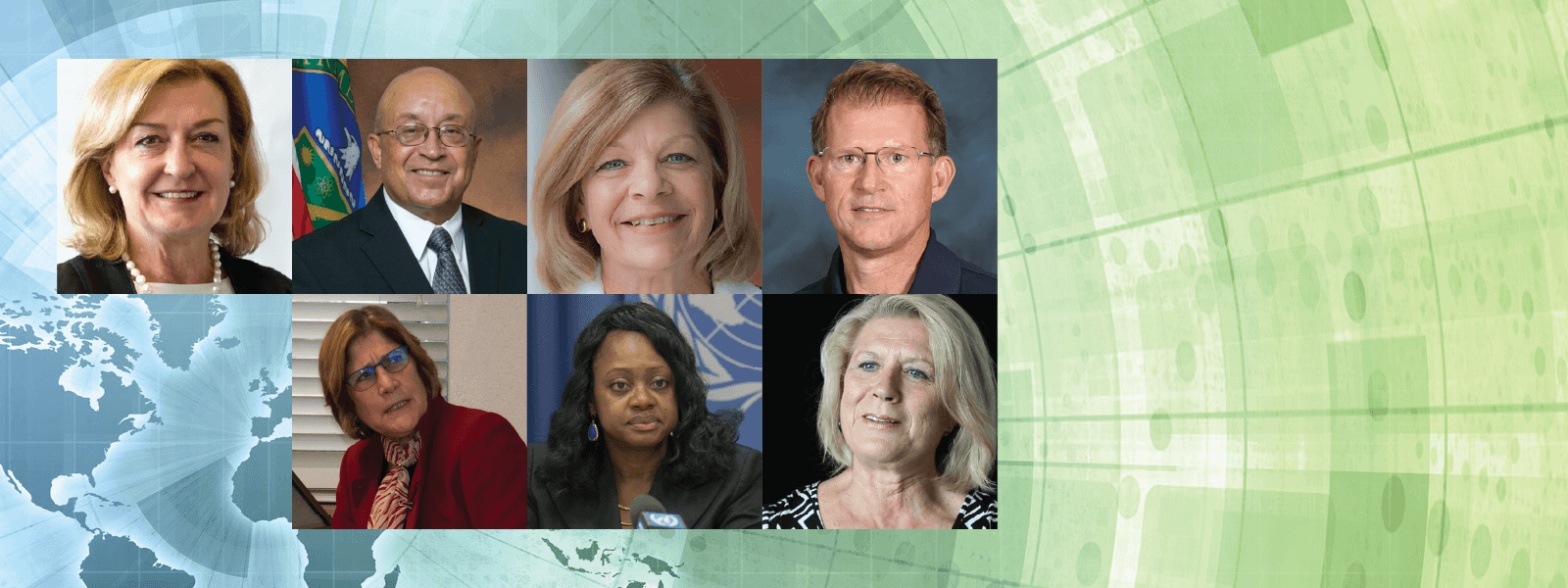This summer, the Center for Nuclear Security Science and Policy Initiatives (NSSPI) at Texas A&M University conducted an online workshop on the Policy and Technical Fundamentals of International Nuclear Safeguards in conjunction with the 2020 Annual Meeting of the Institute of Nuclear Materials Management (INMM). The workshop was intended to provide a comprehensive overview of nuclear safeguards to students and early career professionals aspiring to go into this area. The workshop consisted of a live virtual panel session and an online professional certificate program for those who completed the thirty hours of course work and a final exam. Thirty-eight participants registered for the live event, with twenty-one electing to do the entire certificate program. NSSPI conducted a similar safeguards workshop in person at the 2018 INMM Annual Meeting.
According to NSSPI Director Dr. Sunil Chirayath, who also served as session moderator, “This workshop fills a real need for knowledge transfer from the experienced practitioners in the field of international nuclear safeguards to the next generation. By supplementing a rigorous online training program with real-life stories and experience from some of the foremost experts, we are hoping to both give a realistic view of how things work on the ground and encourage young people to pursue careers in nuclear safeguards.”

The live panel session began on July 12th during the opening day of the INMM Annual Meeting with a presentation from Dr. Warren F. “Pete” Miller, former Assistant Secretary for Nuclear Energy and TEES Eminent Professor and a Professor of Practice in the Department of Nuclear Engineering at Texas A&M University. Dr. Miller’s talk, titled “Nonproliferation and the International Safeguards System (and me),” discussed the milestone moments in the history of nuclear nonproliferation in parallel with his own remarkable experiences as a person of color who broke boundaries in the field. Increasing diversity in nuclear safeguards was another underlying goal of the workshop, whose panel was majority female and included two black professionals. The INMM also received a grant from the Nuclear Threat Initiative that provided workshop scholarships for 20 African Americans and individuals from African countries.
The session continued with an overview of International Atomic Energy Agency (IAEA) safeguards implementation processes by Ms. Therèse Renis, director of the Division of Concepts and Planning in the Department of Safeguards at the IAEA. Ambassador Ana Teresa Dengo, former ambassador of Costa Rica to the UN Organizations in Vienna and former president of the Comprehensive Testing Ban Treaty Organization (CTBTO) Preparatory Commission, then gave a presentation on the policy aspects of international safeguards and the nonproliferation of nuclear weapons, followed by a discussion of the State System of Accounting and Control aspects of international safeguards given by Ms. Jill Cooley, senior technical consultant in nuclear nonproliferation and international safeguards for the Y-12 National Security Complex and former director of the Division of Concepts and Planning in the Department of Safeguards of the IAEA. Mr. Michael Whitaker, group leader of the Nuclear Non-proliferation Division of Oak Ridge National Laboratory’s International Safeguards department, then described how inspections are carried out in US nuclear weapons production facilities. Ms. Shirley Johnson, former section head of Safeguards Operations B at the IAEA, followed with a talk about the technical aspects of international safeguards. The panel session concluded with an overview of opportunities for career development in the nuclear safeguards field by Ambassador Bonnie Jenkins, nonresident senior fellow at the Brookings Institution, president of Global Connections Empowering Global Change, and the former ambassador for Threat Reduction Programs in the Bureau of International Security and Nonproliferation at the U.S. Department of State.
The live virtual panel session gave students and young professionals access to some of the most experienced safeguards and nonproliferation practitioners and experts, and participants had the opportunity to ask questions of the panel. They also had the option of earning a professional certificate by completing a series of online modules through the end of September. In all, NSSPI and the Office for Professional and Continuing Education in the Texas A&M Engineering Experiment Station issued sixteen professional certificates to participants who successfully completed all of the requirements for the program. Over half of those completing the professional certificate were female.
“The INMM was very happy to include the workshop again in its 2020 meeting because it provides an educational opportunity for annual meeting attendees and increases the visibility of our annual meeting,” said Ms. Susan Pepper, current INMM president and chair of the Nonproliferation and National Security Department at Brookhaven National Laboratory. “I believe that this workshop will be a cornerstone of the INMM’s safeguards certification program that is currently under development.”